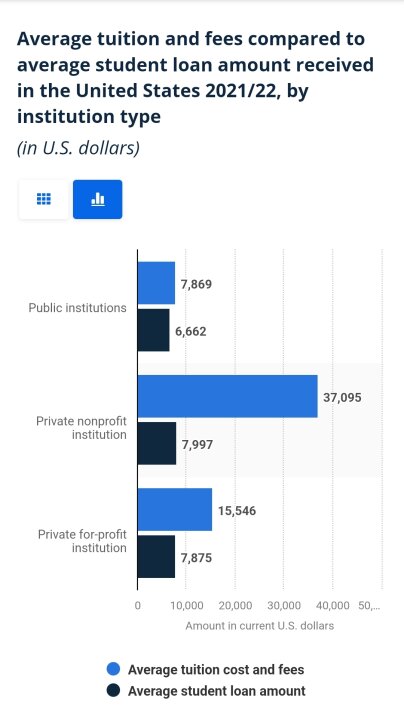@
Jenny1234 why does the tuition there cost so much?
Devaluing of education by the Right has been part of a lowering of government subsidies overall (Federally; States also have a lot of educational spending, but much of that is focused on primary & secondary education ["K-12"]).
"Junior" or "community" colleges are two-year colleges which offer a very inexpensive alternative for both academic (the first two years of most college/university education) and vocational training. These latter programs have offered training in medical technology (specialized techs), office (formerly secretarial) skills, auto body repair, etc. The vocational training is hands-on and gets people certified for working in a specific economuc niche pretty quickly.
The general Republican push to reduce taxes has gutted government income from the very wealthy, reducing the funding of education, roads/other transportation, etc.
When taxes were more evenly paid, we had a country which was being educated, had good public services, was a powerhouse of research, went to the Moon, created nuclear power, led a coalition of free nations in handling world & regional issues, and helped other nations and our own.
Until we get over the gutting of tax income from the very rich, we'll be impoverished.























